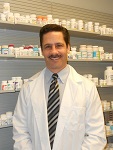The Price of ADHD Business
By Frank J. Granett R.ph.
Over 12 million children and young adults consume ADHD stimulant and psychiatric medications in the United States. Pharmaceutical corporations generated over 10 billion dollars in 2013 for ADHD stimulant drug sales, representing five times the 1.7 billion in sales ten years ago. More alarming, this rate of consumption represents 3x the world's children combined, according to data collected by Scientific American. The business model of behaviorally assessing and prematurely medicating young school age children with powerful stimulant and psychoactive drug therapy for over 40 years is now under fire. The Government Accountability Office (GAO) Child Foster Care Drug Audit Report uncovered dangerous and unethical prescribing practices. Widespread abuses of overmedicating young foster care children with ADHD stimulant as well as psychiatric medications prior to ruling out nutritional, physiological and environmental risk factors were uncovered by the largest child foster care prescription drug audit in American history.
In today's America, parents, educators and prominent healthcare professionals challenge the 40-year ADHD business model, as the ADHD diagnosis rate will reach epidemic status in 2014. The symptoms of ADHD are real and in many cases can be debilitating to children as well as adults. Especially in the young child population, the ADHD business model of assessment and treatment requires immediate reform. Children have a right to receive comprehensive bio-assessments as well as behavioral assessments to determine cause of their symptoms prior to powerful stimulant and psychoactive drug therapy.
The Diagnostic and Statistical Manual for Mental disorders (DSM) lists ADHD as a mental disorder. The DSM diagnosing criteria, created by psychiatrists, involves a subjective behavioral assessment process which forces children primarily into premature drug therapy. Although seven out of ten children may exhibit an initial positive behavioral response to stimulant drug therapy for focus and attention, the long term side effects are now known. The Johns Hopkins Child Center Study results of 2013 prove that stimulant drug therapy should not be the primary intervention in young children. This study followed four year old preschool children who were diagnosed by their physicians for ADHD and medicated with stimulant drug therapy for a six year period. When the ADHD assessments were reviewed at age ten, over ninety percent of the children were worse off in their condition. Long term side effects of ADHD stimulants may include anxiety, minor depression as well as aggressive behavior. Additionally, the Hopkins study determined that ADHD causes an economic burden to the US economy exceeding 45 billion dollars, annually.
Many parents are not aware that a diagnosis of ADHD for their child is a diagnosis for mental disease in accordance to the DSM. Once a young child is placed on ADHD stimulants including Adderall or Ritalin prior to ruling out causative risk factors, there is an increased health risk. Additional medications for the treatment of long term side effects may be required due to the development of other behavioral symptoms. For example, the GAO drug audit uncovered a 2,200 percent increase in drug expenditures for atypical antipsychotic medication reimbursement to the state of Michigan during an eight year period from 2000 to 2008. Children in foster care, as the report states, were abusively prescribed powerful antipsychotic medications including Abilify, Zyprexa, Seroquel, Geodon and Risperdal. The Michigan state Medicaid system was billed an increase of 40 million dollars during an eight year period just for this one class of medications in foster care children. US Senator Thomas Carper, requestor of the GAO drug audit and chairman of the Homeland Security & Government Affairs Committee, stated
"I was almost despondent to believe that the kids under the age of one, babies under age one, were receiving this kind of medication".
Should ADHD be labeled a mental disease especially in young children who have not been given the right to find the cause of their symptoms prior to stimulant drug therapy? Or, should ADHD be classified as a symptom of condition with underlying causative nutritional, physiological and environmental risk factors?
The German magazine, Der Spiegel, quoted a prominent American ADHD psychiatrist in their February 2, 2012 issue. Dr. Leon Eisenberg, who coined the term ADHD over forty years ago, stated "ADHD is a prime example of a fictitious disease". At age 87, this was Dr. Eisenberg's last interview prior to his death. During the last forty years, he was involved in pharmaceutical trials, research, teaching as well as the development of social policy pertaining to child psychiatry. He was a recipient of the Ruane Prize for Child and Adolescent Psychiatry Research. Currently, over fifty percent of psychiatrists on the DSM panel responsible for ADHD diagnosing and treatment protocols have direct business ties to drug manufacturing corporations.
Dr. Thomas Insel, Director of National Institute of Mental Health, stated on April 29, 2013 "patients with behavioral conditions deserve better".the current assessment process lacks validity". He supports research that better treats and may even prevent the development of behavioral symptoms in children. ADHD symptoms can be reversed through a process of differential diagnosing. The elimination of nutritional, physiological and environmental risk factors prior to premature drug therapy is the new ADHD Business Model for helping children and adults reclaim their behavioral and mental health. The Action Plan for Childhood Behavioral Conditions discussed in the book Over Medicating Our Youth as well as the upcoming 2nd edition the American Epidemic: Solutions for Over Medicating Our Youth provides critical bio-assessment information to find the cause of ADHD symptoms. This action plan provides an informational template to unite parents, teachers as well as all healthcare professionals for the purpose of helping children win the battle against behavioral challenges.
Many assessments help determine the cause of ADHD symptoms. Visit the Michigan non-profit Coalition Against Overmedicating Our Youth (CAOOY) www.CAOOY.org . Preview the new book release and CAOOY Educational DVD. Learn how bio-assessments for reactive hypoglycemia, diabetes, the Brain-gut connection, cervical spinal alignment, exercise, whole food nutrition, Brainwave Optimization and nutritional enzyme supplementation may reverse ADHD symptoms. Stay tuned for the next Over Medicating Our Youth Business Report on Rob Kall's media network. Understand why these assessments are needed to reduce "academic doping" at schools and colleges in America. Help support the non-profit CAOOY movement".give children a voice to be heard across America for a positive change in The Price of ADHD Business.





